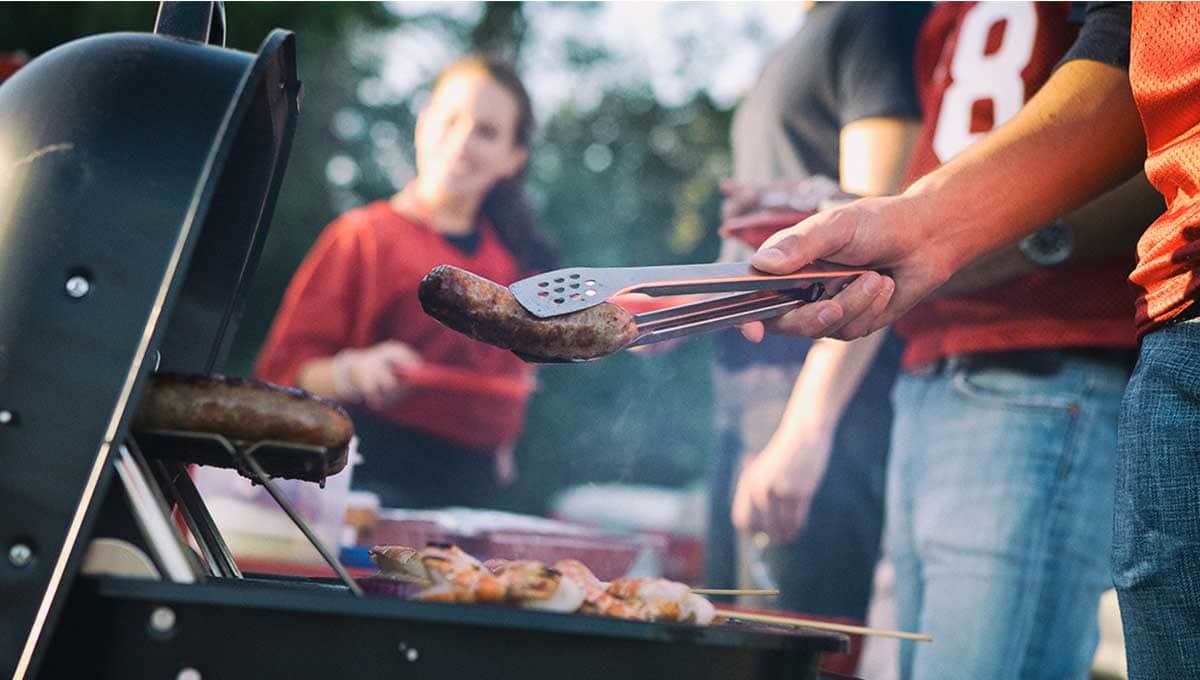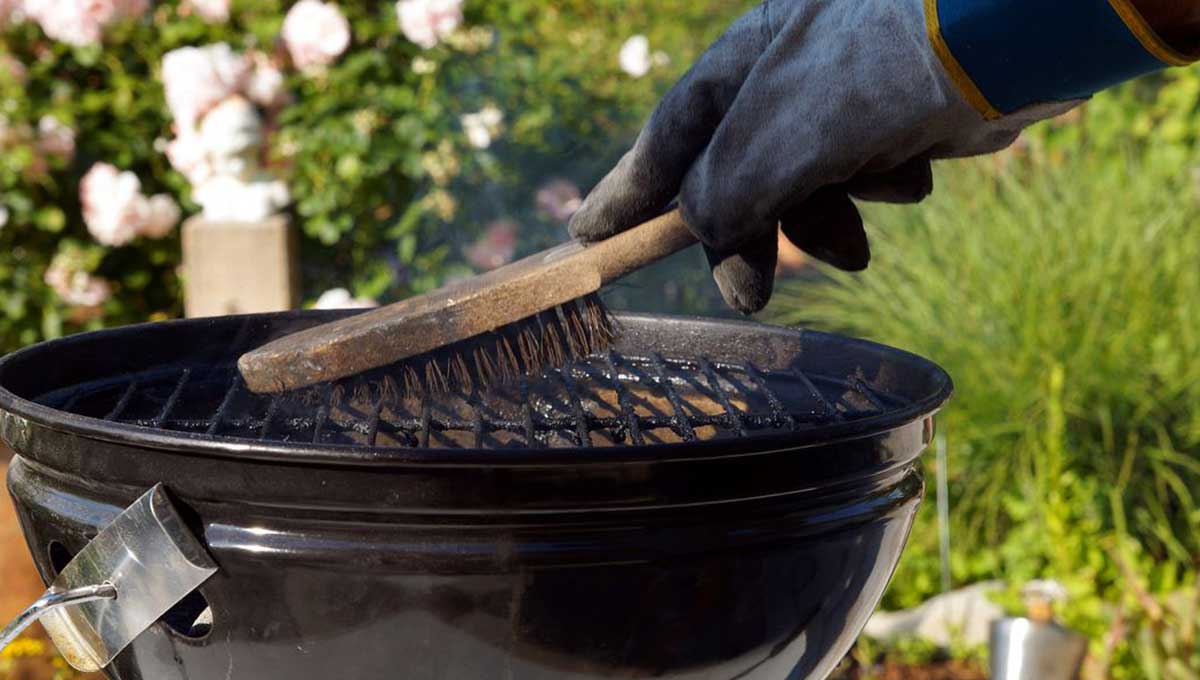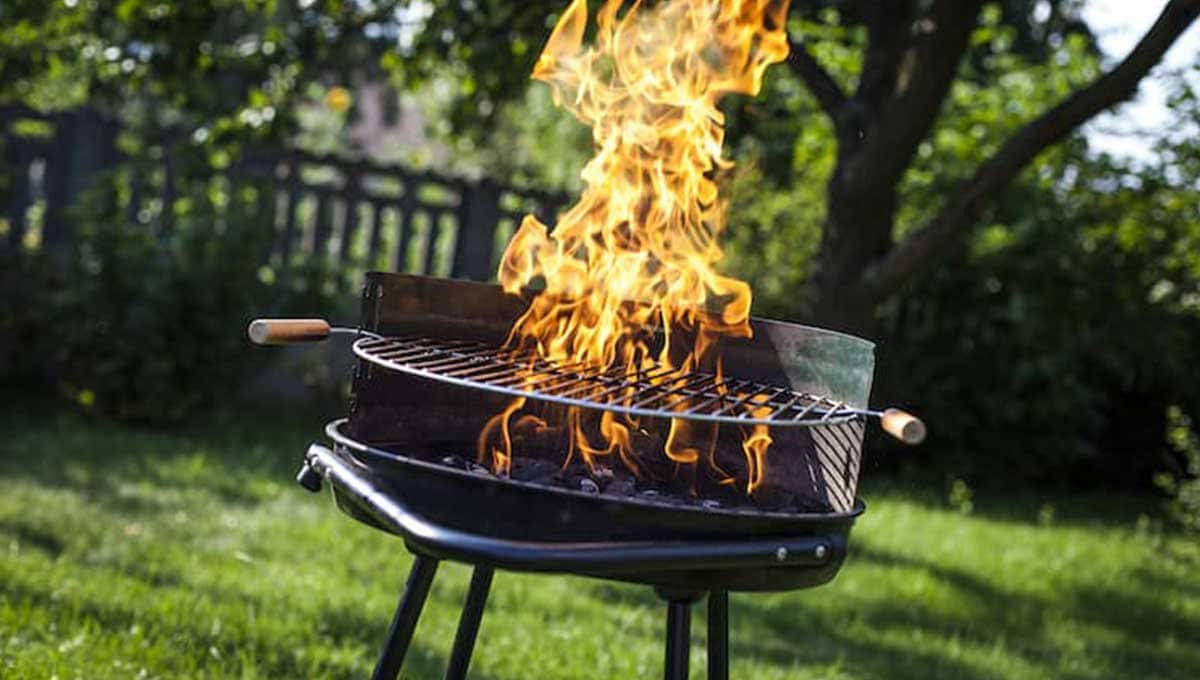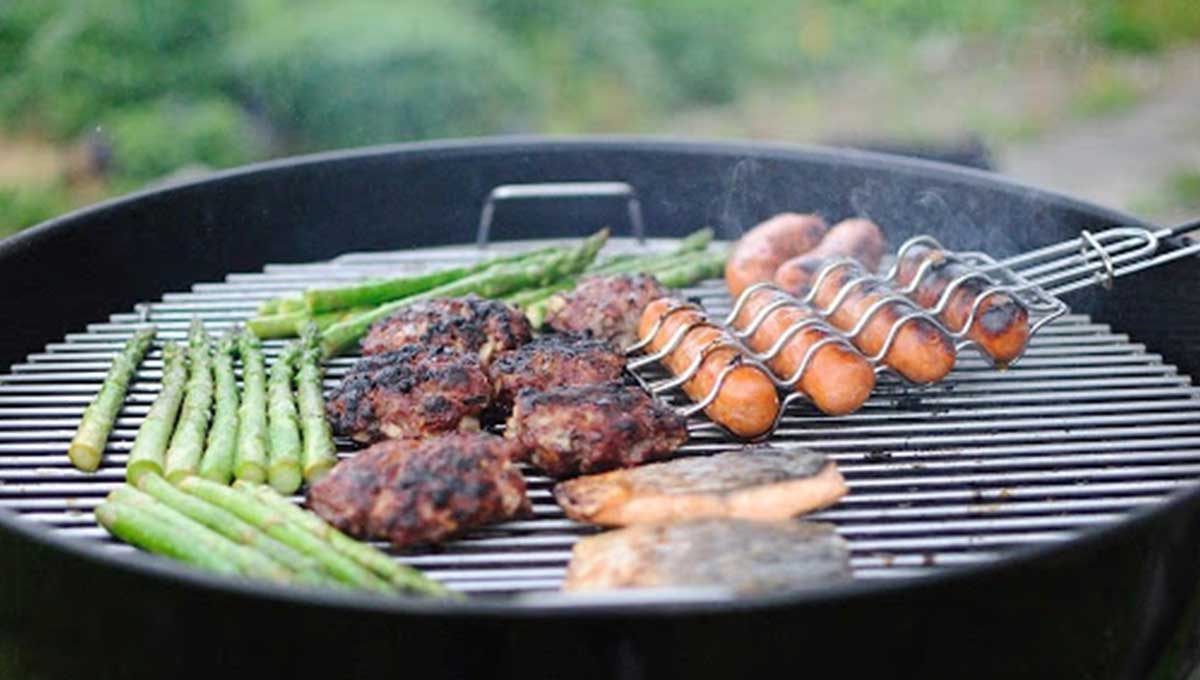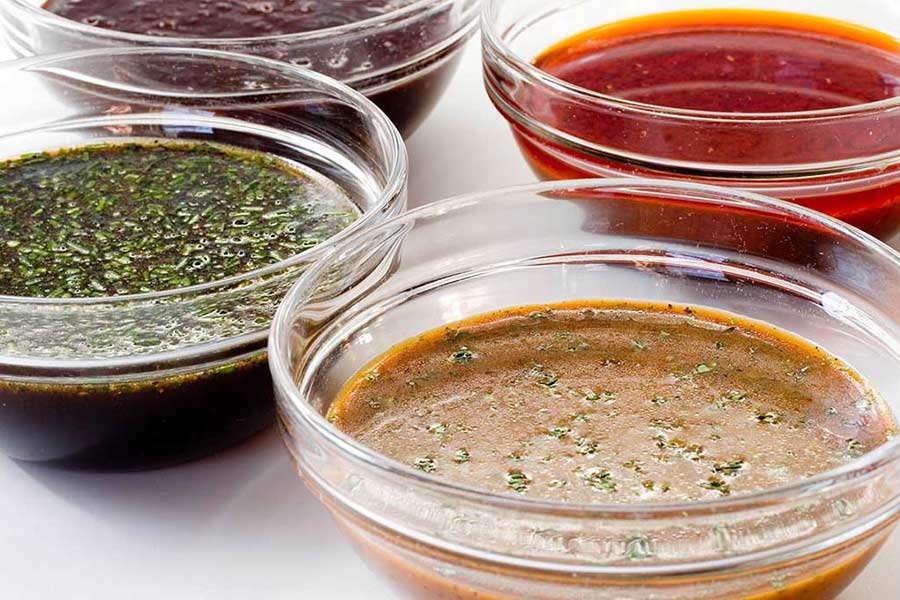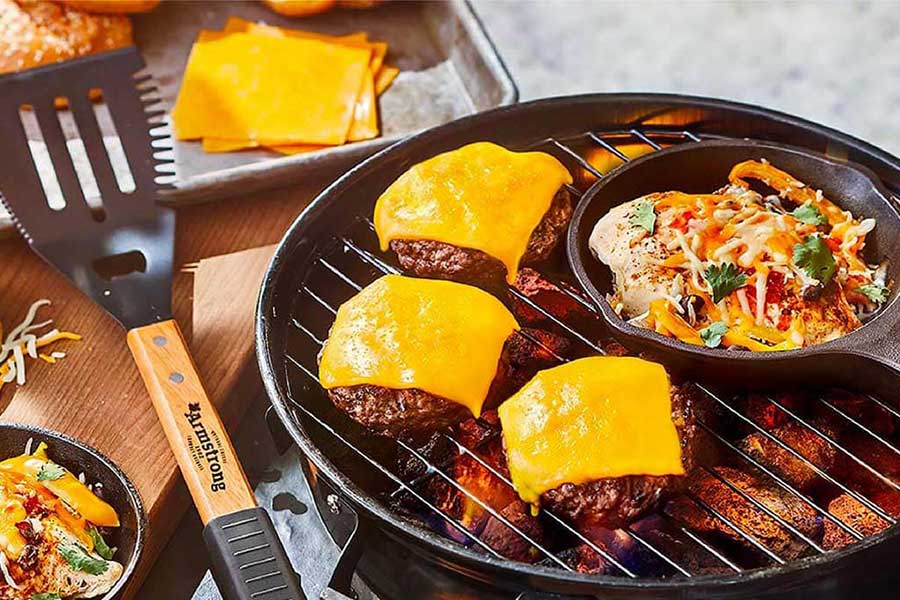There are few things more popular in Canada than the grill. In a 2019 survey, two-thirds of Canadians said that they owned an outdoor grill. Some people even said that they cooked on their grill at least four times a week during the summer.
Grilling is an easy and effective way to cook. But grills can produce fires, toxic smoke, and damage delicious meats. That is why BBQ safety is absolutely essential.
What are important safety tips you should know? How can you produce tastier food on your grill? Where can you bring your grill inside Canada?
Answer these questions and you can grill whatever you want during the summer. Here is your quick guide.
Essential BBQ Safety Tips
Don't worry too much about using your grill. You can use it without too much risk if you follow basic BBQ tips.
Keep Your Grill Away From Your House | Give It Space!
At a minimum, you should keep your grill at least ten feet (three meters) away from your house. This includes your garage and porch.
Grills produce smoke that can damage paint and walling. Putting your grill at a distance will allow the smoke to escape into the air. If it catches on fire, you won't need to worry about the flames spreading elsewhere on your property.
Do not use your grill near a wooden object, especially wooden overhangs. It does not matter if you use a charcoal grill. One spark can set off a blaze.
Whenever possible, place your grill on a concrete or asphalt surface. They do not conduct flames that can spread across a distance.
Keep Your Grill Stable
Keep your grill on a flat surface like concrete. Make sure that the wind or a falling object cannot knock it over.
Place a pad beneath your grill that can keep it secure. A pad will also catch any sparks or grease.
If your grill has wheels, make sure you can lock them into place. Put a stopper in them so they cannot roll while you are cooking.
Keep Your Grill Clean
You should clean your grill at least once a month, even if you are not using it. Grease can become caught in the grates and feed a fire. Dust can also clog your grill and make your grates hard to use.
How you clean your grill depends on what grill you have. If you have porcelain grates, use a soft-bristled brush to scrub with.
If you have cast-iron grates, use a wire brush. Rub them with a little vegetable oil after cleaning so they don't rust.
You can use any type of brush on stainless steel grates. Keep them as dry as possible while you are cleaning them. If you splash water on them, wipe them off with a rag.
You can use traditional wire grill brushes. But their bristles are brittle, and you may swallow one by accident. Use aluminum foil or a scouring pad instead.
You can turn your burners on high to burn off any excess grease. You can also soak your grates in soapy water, then warm them to create steam. When you scrub them, you may pull a lot of residue off.
Make sure to clean the tools you use to grill as well. If your tongs start to warp, buy new ones.
Never Leave Your Grill Unattended
A flame can turn into a fire in under 30 seconds. Your grill should be your top priority while it is on.
If you need to walk away, have someone else watch over it. If no one is available, turn your grill off and wait for the flames to die down.
Be Prepared to Put Out a Fire
The easiest fire to put out is one that never occurs. Keep your flames as small as possible. Follow basic guidelines on how to prevent house fires.
Do not turn on the gas supply while the grill is closed or sealed. Gas will build up under the lid. When you open it up, it can spark and cause a huge fireball.
If the flames are rising too high, turn off your gas supply right away. Leave your lid off so you can monitor the flames.
Before you turn on your grill, look at your propane gas tank. Apply a little soapy water to it and then turn it on.
If it starts to bubble, you have a leak. Shut your grill off and get it fixed.
When a fire occurs, you will panic. Step back from the grill and observe where the flames are coming from.
If they are coming from your grates, you may have a grease fire. You should not use water to put it out. Smother the fire's supply of oxygen by pulling the lid down or putting a damp rag on top of the grates.
BBQ Tips for Producing Tastier Food
Many people like to use their grills to char meats and vegetables. But grills are far more versatile than charring. Follow some basic steps, and you can make the most of your grill.
Don't Use Lighter Fluid
Lighter fluid is loaded with chemicals. These chemicals cannot poison you, but they can affect the flavours in your food.
Do not use it. Light your charcoal with a match and supply the flames with kindling.
If you must use fluid, wait for the fire it makes to go out. Put your food on the grates when the charcoal is gray. It may take some time for this to occur.
Don't Cook Too Much Food at Once
Crowding your grill is a fire hazard and it hurts the taste of your food. The juices from a grilled pepper will run into your steak and vice versa.
Cook your vegetables, then your meats. You should also cook each type of meat by itself, especially seafood.
Provide a couple of inches between each food. Make sure they are not touching the walls or top of your grill. Avoid moving them while they are cooking.
Clean Your Grill
Leaving grease on your grill will impact the flavours of your dishes. How you clean your grill will also impact the flavours.
If you use too much oil to clean, you will taste it in your food. Alternate between using oil and soapy water.
Make sure your grates are dry before you use them. Dry them off with a towel and shake off any excess dust or debris.
Don't Forget to Marinade
Marinades infuse flavours and moisture deep into meats and fish. You can select from a number of marinades, depending on what you decide to grill.
For a sweet and salty marinade, you can mix soy sauce with honey. Combine it with vinegar and spices, then place beef or chicken inside. Let your meat soak for at least four hours before you start to grill.
For a citrusy flavour, you can combine orange and lime juice together. Stir juices with garlic, onion, and seasoning. Let a fish fillet soak in the marinade overnight.
Use a Meat Thermometer
Many people concerned about barbeque safety cut into their meats to see if they are cooked. This is a good way of telling if they are ready. But it spills their juices out, creating drier and less flavourful meats.
A meat thermometer will give you a clear indication of when your meat is done. Familiarize yourself with the safe internal temperatures you should cook your meat to. Poke the thermometer into the top of your meat.
It should reach the center, but you should not push too much. You do not want to poke a hole all the way through your meat.
Where You Can Bring a BBQ in Canada
You can cook on a grill on your private property. You should do so outside where you have access to the open air. Cooking inside is a fire hazard, and you may breathe in harmful gases.
Some apartment complexes may limit your ability to grill. Check your landlord's guidelines.
You can bring your grill to some public parks, including in Vancouver. The grill must be tall enough that it does not spread too much grease on the ground.
Toronto forbids residents from bringing their barbeque into a city park unless they receive a permit. Read your local regulations before taking your grill out.
You can travel with your grill, though it can be a little bulky. Leave room for disassembling your grill on your road trip checklist.
How to Grill Without a Care in the World
Before you take out your grill, you should know BBQ safety tips. Put ten feet of space between your grill and your house. Cook on a stable surface and keep it clean.
Attend to your grill while it is on. If it starts a fire, smother the flames.
To make tastier food, don't use lighter fluid. Don't crowd your grill, and incorporate marinades into your recipes.
You may be able to bring your grill to a public park. Check your local regulations to be sure.
Make your life worth living. Insurdinary helps you compare insurance policies. Receive a quote today.

